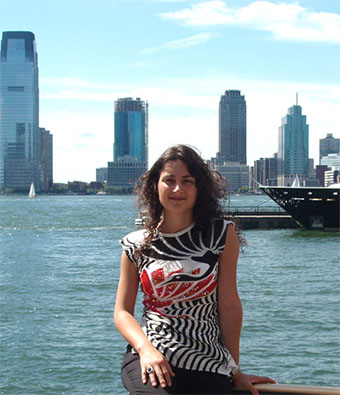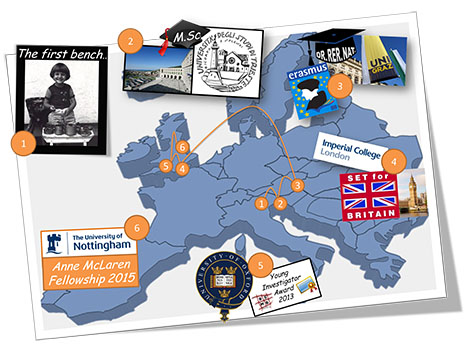March 11, 2016, by Editor
Anna Piccinini’s blog for International Women’s Day 2016
A very European journey in science
The first bench at which I spent endless hours was not in the lab but in the garden. The natural curiosity and sense of exploration that has kept me outdoors and away from television as a child is the same that has driven me to the lab in biomedical science as a grown up.
Before starting university I was undecided between pharmacy and medicine. As I really wanted to know why and how medicines make us feel better when we are sick, I decided that pharmacy made more sense. These studies at the University of Trieste – Italy – nurtured my interest in the molecular mechanisms underlying diseases without a cure and it became clear to me that I wanted to do research.
I soon realised that mobility and international exchanges are a fundamental element in science and I obtained an EU-sponsored Socrates / Erasmus grant. I couldn’t have made a better choice! This experience opened new doors, which led to a fully funded PhD at the University of Graz – Austria. By studying how white blood cells travel through the body to reach sites of inflammation, I learned the importance of the extracellular environment in determining cell decision and fate, I was hooked!
Eager to learn more about the biology of the environment that surrounds cells or extracellular matrix, I moved to England where I met a lot of inspiring people from whom I never stop learning. Here, I have been investigating how the matrix interacts with the immune system while working at the Kennedy Institute of Rheumatology, which was part of Imperial College London until 2011 and the University of Oxford afterwards. This has been a very exciting time full of memorable (and once in a lifetime) opportunities such as presenting my work at the House of Commons and receiving the Young Investigator Award 2013 from the British Society for Matrix Biology.
Becoming more aware of our surroundings
Our immune cells continuously patrol the body to find and kill invading germs. Whether and how the extracellular environment influence how these cells respond to infection is not clear. My recent work links the extracellular matrix with a mechanism of regulating gene expression through short RNA molecules (the microRNAs) during the response to infection. These findings not only redefine the general perception of the extracellular matrix during infection (from a simple scaffold/barrier to an active player), but also form the basis of my current research programme at the University of Nottingham as Anne McLaren Fellow. This is a prestigious fellowship for female scientists who want to pursue a career in academia and I feel very privileged to conduct exciting research while working in such a collaborative environment!
No comments yet, fill out a comment to be the first



Leave a Reply